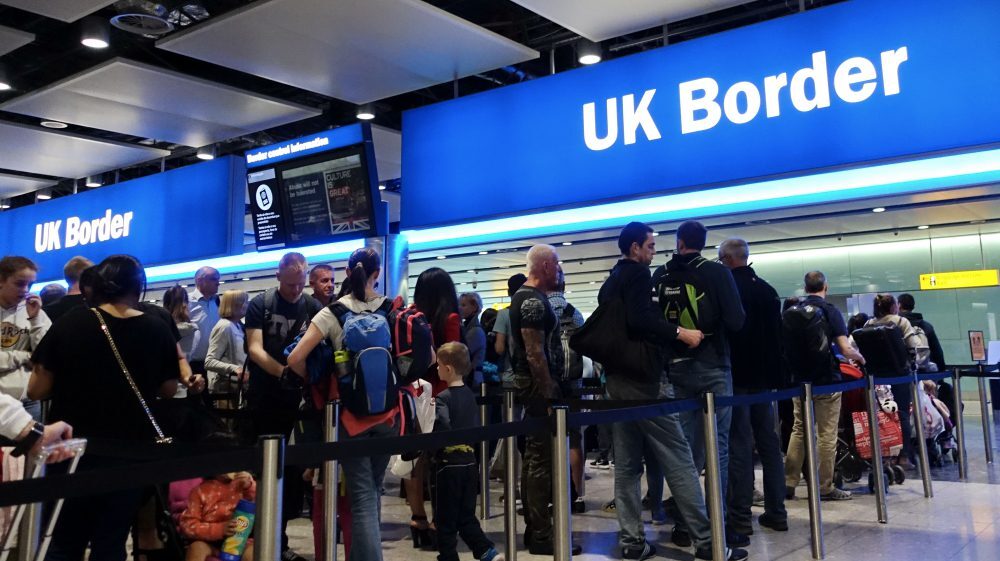
Photo: 1000 Words / Shutterstock.com
Almost eight years after Britons voted to leave the European Union—in an explicit signal to politicians to “take back control” of national borders—immigration levels now mean that a major population milestone is likely to be reached a decade early.
Official figures show that net migration will drive up the UK population to over 70 million by 2026, 11 years earlier than predicted. If correct, this would be the strongest indicator yet that immigration to the UK has become out of control.
2026 will also mark 10 years since Britons backed Brexit—a vote primarily about immigration in the context of national sovereignty. The same day that voting opened on the question of the UK’s membership of the EU, official statistics made it clear that mass migration had played a huge role in pushing the population of Britain to over 65 million. Yet commentators have repeatedly warned that the systems introduced following the Brexit ballot have only made matters worse.
Border analyst and Migration Watch UK Chairman Alp Mehmet told The European Conservative that he always knew “the system brought in after Brexit would lead to higher migration levels.” He added:
Population increase on the current scale and speed, driven by immigration, has serious implications for the future cohesion and stability of our society. It’s very worrying.
Rather than limit migration numbers altogether, as the Conservative Party long ago promised to do, the government introduced a ‘points-based’ system under which record numbers of people are entering the country every year. (Many more, in fact, than statisticians are projecting for the coming years, which suggests the population milestone could be reached earlier still.)
Noting that Brexit was “driven by public anger over uncontrolled mass immigration,” Ben Harris-Quinney, chairman of the Bow Group conservative think tank, criticised the “points-based” system as a “bizarre confection … attempted by the government after Brexit [claiming] that the public wanted far more immigration from non-EU nations, whereas we clearly wanted a decisive reversal of mass immigration.”
Britons may have voted for borders to become properly controlled, rather than just a little more selective, but, as Harris-Quinney told this publication, “whatever the public vote for, the establishment finds a way to override, neuter, or ignore public sentiment in favour of a globalist agenda.”
This is no more true than in the case of mass immigration where the public have only voted against it, yet it has been a consistent policy across all parties over 30 years.
Home Secretary James Cleverly responded to the news, insisting that “we must get back to sustainable levels” of immigration. After 14 years of Conservative rule, he gave no indication of when this might take place. If, as is most likely to happen, Labour wins this year’s general election, migration numbers will no doubt climb higher and higher still.
